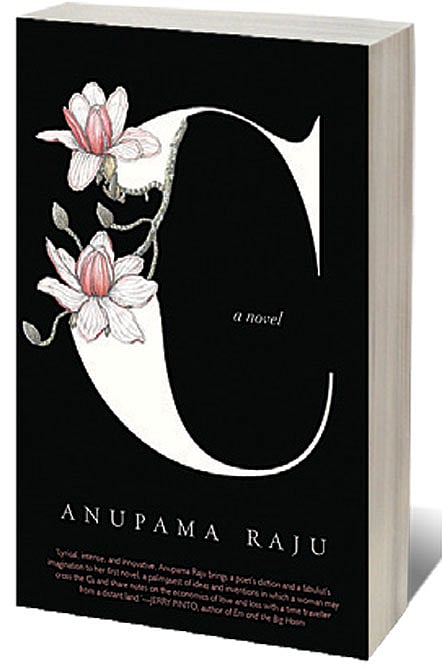Eternal City

IN ANUPAMA RAJU’S C: A Novel, an unnamed woman enters a city of darkness, determined to write. We meet her first at the beach, sari-clad, book in hand, decidedly beautiful, though unconventionally so. We meet her next as she unlocks her house in a city called C that will give her the “eternal night” she desires. Her friends and family do not support this shift but she chooses it hoping to prevent writer’s block, entering her small safe haven “sterile and white like a hospital ward.” The book switches points of view from the woman to C, and chronicles her struggles with writing and love.
Described as a “shapeshifter of a novel” by Namita Gokhale, the book was borne out of an experiment to make poetry the heart of a novel. All reflections lead to inventive poems, perhaps to show how the protagonist can become uninhibited only in language. Raju, who’s previously published a collection of poems titled Nine, took four years to write C. The book blends the poetic and prosaic, creating vivid imagery, like in the opening line: “Every time a wave bathes it, the beach lights up like marmalade.” Raju’s characters also find the poetic in drivel and banality.
The protagonist doesn’t have any concrete plans in C, and finds herself walking along streets, visiting bookstores, eating out, and interacting with people at the university. She is troubled but instead of providing a backstory, small details about her life spill out when she is unencumbered. She mentions suicide attempts, depression, sexual assault, a distant lover, but never elaborates. The reader learns the what but never the why. Her lover, who occupies the central stage in the story is “cold and calculating as a watchful falcon,” but she is hopelessly devoted to him. One day, she discovers a book written in an ancient Tamil script and meets the only character in the book with a name; Alice. C believes that if Alice and she meet, they can heal each other’s sorrows. Like her, years ago, Alice too was heartbroken and used C as a refuge. Alice slowly reveals her life’s story, letting the protagonist uncover why C is sunless.
AIming High
20 Feb 2026 - Vol 04 | Issue 59
India joins the Artificial Intelligence revolution with gusto
An ethereal woman of the past, Alice left her home and husband to follow her heart. She meets a man in a distant land and falls in love, breaking language barriers. She is soon forced to part from him, but he leaves her with a message, in the same book the protagonist discovers. Alice reveals that she hasn’t been able to uncover its significance because she doesn’t read Tamil. The protagonist helps her read and they continue to share intimate details with one another. They get aroused by each other’s revelations and make love. Their stories help each other uncover parts of themselves that have been lost. Eventually, their friendship brings the sun back into C and they leave their place of refuge.
Although Raju premises a large story with their friendship, the unfolding chapters focus more on craft than they do on fiction, not letting the reader into the heart of the story. Raju’s writing is a delight, especially for poetry lovers but the novelty of her experiment wears off when the fictional elements do not get the deserved space in the text. The experimental writing that seems evocative at first, soon feels overly adorned. However, what is made apparent is that words have the power to heal; to bring, literally, sun back into a dark city. Raju has written previously about finding empathy through literature. In a recent article, she wrote: “If a voice we hear through a poem or a novel can show us the way there and help us stay well, we should perhaps listen.” In the end, the protagonist comes upon the realisation that she can do nothing but write, and perhaps that is the only way to save herself.

